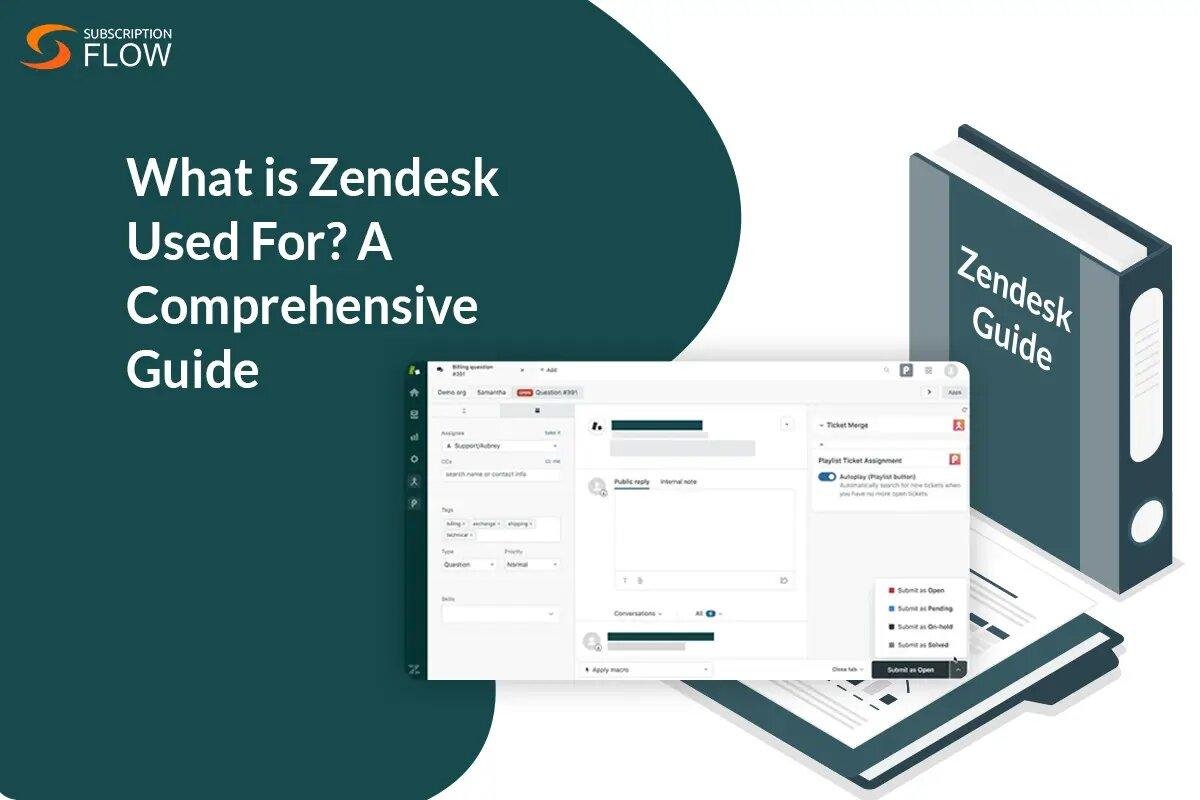In today’s competitive market, exceptional customer service is not just a nice-to-have; it’s a necessity. For SaaS businesses, where customer retention and satisfaction directly impact revenue, leveraging the right tools for customer support is critical. Use of Zendesk, a leader in customer service software, offers a robust platform to help businesses manage and improve their customer support processes effectively.
What is Zendesk?
Zendesk is a comprehensive customer service platform that allows businesses to manage customer interactions across multiple channels. From ticketing systems to live chat, social media, and email, Zendesk centralizes customer communication, making it easier for support teams to respond quickly and efficiently.
Key Features of Zendesk
- Multi-Channel Support: Zendesk supports multiple communication channels, including email, chat, phone, and social media, allowing businesses to interact with customers on their preferred platform.
- Ticketing System: At the heart of Zendesk is its powerful ticketing system. It allows support teams to track, prioritize, and resolve customer issues with ease. Each interaction is recorded, ensuring no query goes unanswered.
- Automation and AI: Zendesk uses AI and automation to streamline support processes. Automated ticket routing, canned responses, and chatbots help reduce response times and improve efficiency.
- Self-Service Options: Zendesk enables businesses to create knowledge bases and community forums, allowing customers to find answers to common issues independently, reducing the load on support teams.
- Analytics and Reporting: Zendesk provides detailed analytics and reporting tools, giving businesses insights into support team performance, customer satisfaction, and other critical metrics.
Benefits of Using Zendesk in SaaS Businesses
1. Improved Customer Satisfaction
With Zendesk, SaaS businesses can deliver timely and effective customer support, leading to higher customer satisfaction. The platform’s multi-channel support ensures that customers can reach out through their preferred method, and its ticketing system ensures that their issues are tracked and resolved efficiently.
2. Enhanced Efficiency
Zendesk’s automation tools help support teams manage large volumes of customer inquiries without compromising on service quality. By automating repetitive tasks like ticket routing and response, support agents can focus on more complex issues, enhancing overall efficiency.
3. Scalability
As SaaS businesses grow, so does the demand for customer support. Zendesk is highly scalable, allowing businesses to add new channels, support more customers, and expand their support team without losing productivity. Its cloud-based infrastructure ensures that the system remains fast and reliable, even as the business scales.
4. Data-Driven Decisions
Zendesk’s analytics and reporting tools provide valuable insights into customer behavior and support team performance. SaaS businesses can use this data to make informed decisions about staffing, training, and customer service strategies. By identifying trends and areas for improvement, companies can continuously enhance their customer support processes.
5. Customization and Integration
Zendesk offers a high level of customization, allowing businesses to tailor the platform to their specific needs. With over 1,000 integrations available, Zendesk can seamlessly connect with other tools and systems, such as CRM platforms, marketing automation software, and project management tools. This level of integration helps create a unified ecosystem that supports all aspects of customer engagement.
Best Practices for Using Zendesk
1. Leverage Automation Wisely
While automation can significantly improve efficiency, it’s essential to strike a balance. Use automation for repetitive tasks, but ensure that complex issues are handled by human agents. This approach ensures that customers receive personalized support when needed.
2. Continuously Update Your Knowledge Base
A well-maintained knowledge base is a valuable resource for customers and support teams alike. Regularly update your knowledge base with new information, tutorials, and FAQs to empower customers to resolve issues independently.
3. Monitor and Optimize Performance
Use Zendesk’s reporting tools to monitor key performance indicators (KPIs) such as response time, resolution time, and customer satisfaction. Regularly review these metrics and make adjustments to your support processes as needed to ensure continuous improvement.
4. Train Your Support Team
Ensure that your support team is fully trained on using Zendesk and understands the importance of customer service in your business. Regular training sessions can help keep your team up-to-date on the latest features and best practices.
Conclusion
For SaaS businesses, where customer satisfaction and retention are paramount, Zendesk offers a powerful solution to manage and enhance customer support. By leveraging its robust features, automation capabilities, and data-driven insights, SaaS companies can improve efficiency, scalability, and customer satisfaction, giving them a competitive edge in the market.
Implementing Zendesk as part of your customer support strategy is not just about adopting a new tool; it’s about committing to delivering exceptional service at every touchpoint. In an industry where customer loyalty is hard-won and easily lost, Zendesk can be a game-changer for your business.
By integrating Zendesk into your customer support strategy, you’re not just adopting a tool—you’re committing to a customer-centric approach that can scale with your business. Whether you’re a startup or an established SaaS company, Zendesk provides the flexibility, automation, and insights needed to deliver exceptional service. In a competitive market, where customer experience is a key differentiator, Zendesk empowers you to exceed expectations, turning satisfied customers into loyal advocates for your brand.




